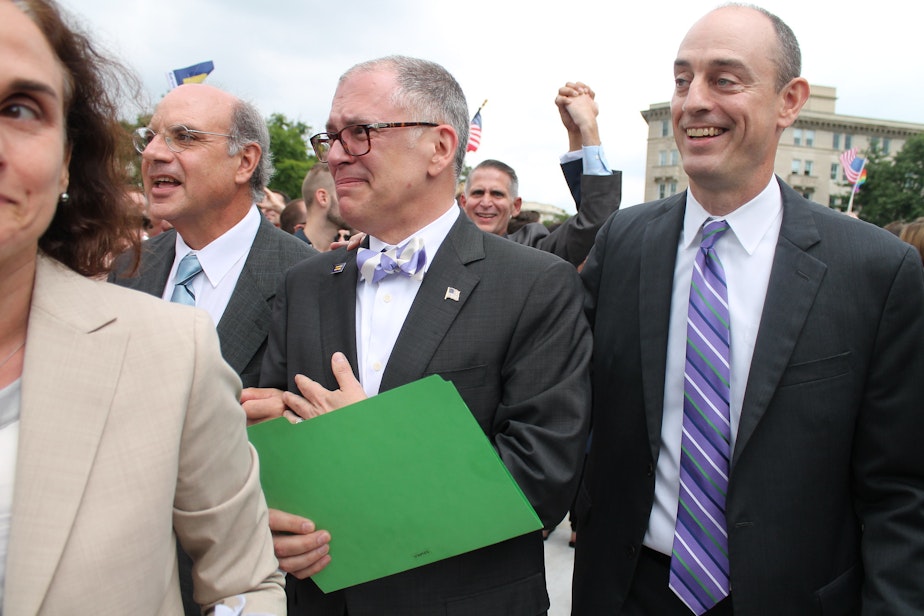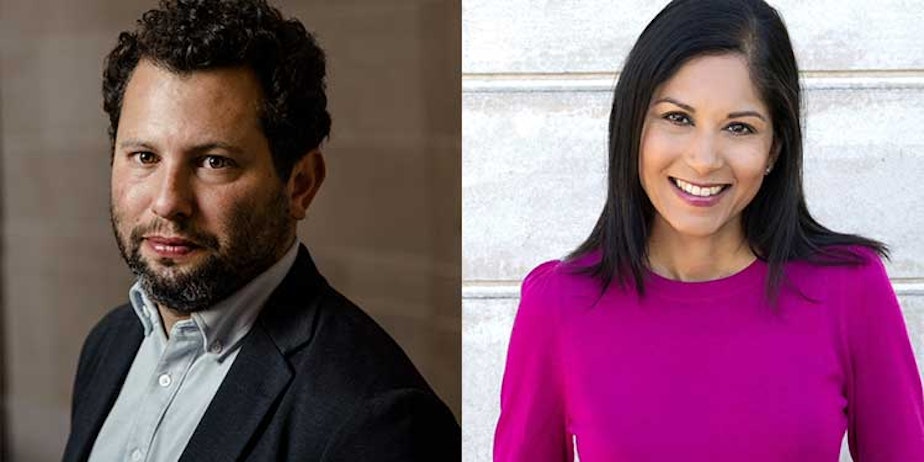Sasha Issenberg tells the surprising story of how marriage equality was won

In a way, the history of same-sex marriage in the United States comes down to one story, and a name you may not recall. James Obergefell did not want his name to take on the historical significance it has, in part because he knew people would mispronounce it. “I’m just Jim,” he told the Washington Post. “I just stood up for our marriage.”
As a civil rights victory, the 2015 Supreme Court decision in Obergefell v. Hodges looms large — but it wasn’t just about Jim. The case brought together various pleadings of injustice and discrimination in a consolidation of six lower-court cases.
The court’s ruling, which declared that state bans on same-sex marriage were unconstitutional, represents an extraordinary turning point in the struggle for gay rights. The story of how that moment came to pass is complex, informative, and personal.
Prior to Obergefell, a tide had begun to turn. Laws, court rulings, and voter initiatives had established same-sex marriage in 36 states. Many of us knew legally married same-sex couples, but in states with bans, such marriages were not recognized.
In 2013, James Obergefell and John Arthur travelled to Maryland to get married. Mr. Arthur was terminally ill with ALS. He passed away the same year. Back home in Ohio, Jim sought to have the state registrar identify him as the surviving spouse on John’s death certificate. The local registrar agreed that discriminating against the couple was unconstitutional, but the state attorney general’s office made plans to defend Ohio's same-sex marriage ban.
It has been just over six years since the Obergefell ruling. In his new, exhaustively researched book The Engagement: America’s Quarter-Century Struggle Over Same-Sex Marriage, author Sasha Issenberg shares many of the stories and successful strategies that led to marriage equality.
Sponsored

Sasha Issenberg is the Washington correspondent at Monocle. He teaches in the political-science department at UCLA. He is interviewed here by journalist Aditi Roy. Town Hall Seattle presented this conversation on June 15, 2021.
If you have any feedback on this episode, you can email me at jobrien@kuow.org
Or you can just click the feedback button on the edge of this page. Reach out. We're listening.




